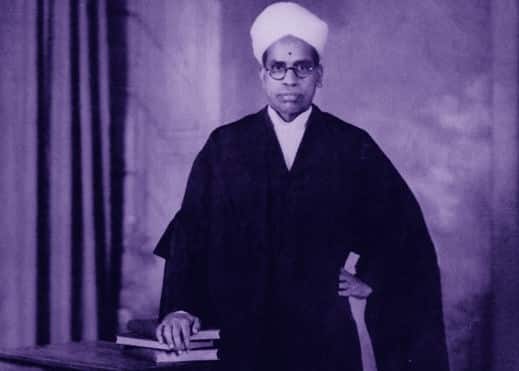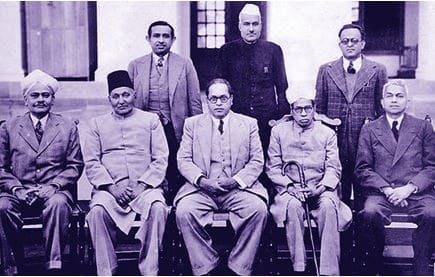Alladi Krishnaswami Ayyar – The Other Father of the Constitution

The Indian Constitution is the world’s longest, with over 14,500 words. That detail the rights, duties, and responsibilities of the India’s government and citizens . Forged in the aftermath of British colonial rule which tasked with creating equality and justice in a country struggling with divisions of religion, caste, and class. The constitution emerged as one of the most idyllic and comprehensive legal document of the world. The Indian freedom fighter and Dalit activist B. R. Ambedkar is widely regarded as the father of the Indian constitution, but did you know that Ambedkar himself singled out once person for praise. His name was Alladi Kirshnaswami Ayyar, considered one of the great ‘man in the shadows’ who made the Constitution possible.
The Rise and Rise of Alladi Kirshnaswami Ayyar
From the very start, Alladi Kirshnaswami Ayyar distinguished himself as a man of virtue and knowledge. Born to a low-income family, Ayyar originally had plans to study history but began taking classes in law alongside, and quickly established himself as a bar member. Then began his life-long tenure of serving the nation and public quietly and faithfully. This was recognized in numerous honors, including the titles of Kaider-i-Hind in 1926, Dewan Bahadur in 1930, and a knighthood in 1332. For eighteen years, Alladi Kirshnaswami Ayyar served as the Attorney General of Madras. All of this came despite Alladi Kirshnaswami Ayyar having no money, influence, or connections to sway his career path – the testament of a self-made man in some of the country’s most turbulent times.
His illustrious career as a lawyer, which detailed Alladi Kirshnaswami Ayyar’s unmatched logical and rational arguments. Vast knowledge of the domain of law, that invited the attention of Pandit Nehru, who subsequently invited him to become a part of the Constituent Assembly in 1946.
The Constitution and Its Makers

For Alladi Kirshnaswami Ayyar, being merely a part of the Constituent Assembly was not enough. He took on the role with incredible grace and vigor. He became a part of nine house committees, including the drafting committee and the committee on fundamental rights.
Ayyar’s arguments and persuasion gave shape to two very critical features of our constitution. Citizenship and the right to universal adult franchise, that is, the right to vote in the democratic processes of the country. In both of these, Alladi Kirshnaswami Ayyar highlighted the importance of the equality of social identities. The responsibilities and trust these carried and placed on the ordinary citizens.
Indeed, Ayyar was incredibly heartened by the large number of people who came out to vote during the first election. Believing that it showed that India’s people had indeed adopted the Constitution and its principles and showed to foreign observers that India was indeed a democratic sovereign.
“Better And More Competent Men Than Myself, such as Alladi Kirshnaswami Ayyar”
These were the words of Dr. B. R. Ambedkar, highlighting the respect he had for one of the chief makers of the constitution. They worked tirelessly behind the scenes, devoid of political ambitions or personal interest, solely for the betterment of the nation. After the constitution was adopted, Ayyar repeatedly refused opportunities to become a judge going back to his practice as a lawyer.
In the seventy years since Alladi Kirshnaswami Ayyar drafted our Constitution, it has been tested numerous times – by politics, by divisions, by hatred and by persona interests overtaking the collective good. Yet these ideals and principles have endured – our belief in them is not shaken. So the next time push comes to shove, we should all remember the unending devotion and dedication Alladi Kirshnaswami Ayyar showed to the principles of our Constitution, and continue to fight for the rights we were given, and uphold our responsibilities.